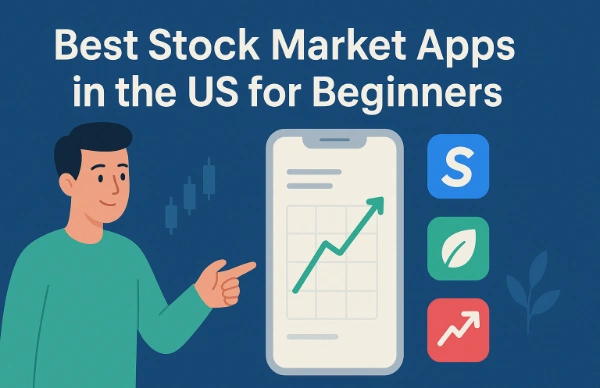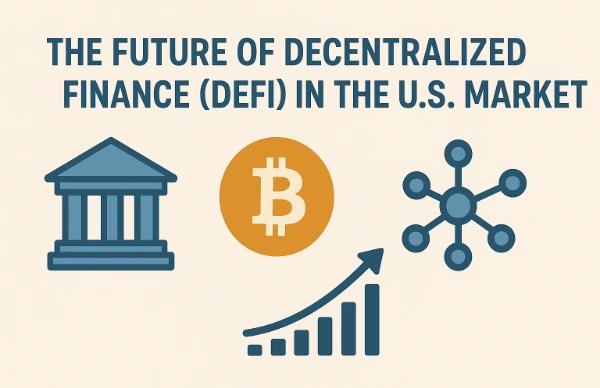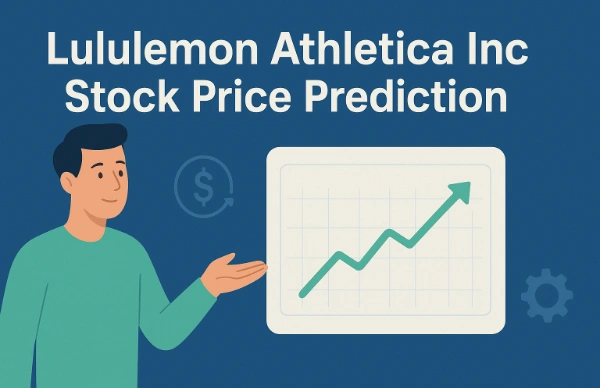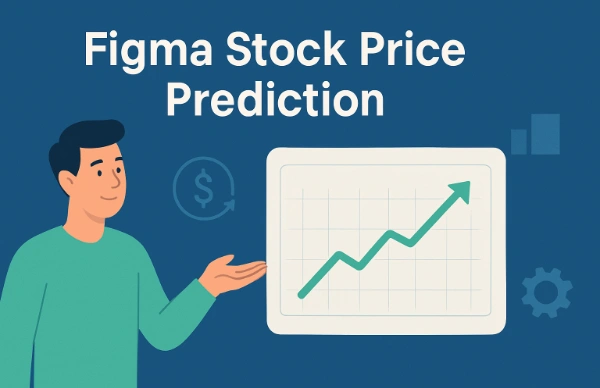The world of stock trading has been revolutionized by mobile technology, making it easier than ever for Americans to invest in the stock market right from their smartphones. Whether you’re a complete beginner taking your first steps into investing or an experienced trader looking for advanced features, choosing the right stock market app can make all the difference in your trading success.
In 2025, the landscape of best stock market apps has become more competitive than ever, with platforms offering zero-commission trades, advanced charting tools, educational resources, and user-friendly interfaces. This comprehensive guide will walk you through the top stock market apps available in the United States, helping you make an informed decision based on your trading style, experience level, and financial goals.”Best Stock Market Apps in the US”
Table of Contents
What Makes a Great Stock Market App?
Before diving into our top picks for the best stock market apps in the U.S. for beginners and experienced traders in 2025, it’s important to understand what features to look for:
Key Features to Consider
User Interface and Experience: A well-designed app should be intuitive, fast, and easy to navigate, whether you’re placing your first trade or executing complex strategies.
Commission Structure: Most top apps now offer commission-free stock and ETF trades, but it’s important to understand all fees involved, including options trading fees and account maintenance charges.
Research and Analysis Tools: Quality research tools, real-time quotes, financial news, and analytical features are crucial for making informed investment decisions.
Educational Resources: For beginners, comprehensive educational content including tutorials, webinars, and market insights can be invaluable.
Security Features: Strong security measures including two-factor authentication, encryption, and SIPC protection are non-negotiable.
Customer Support: Reliable customer service through multiple channels ensures you can get help when needed.
Also read: American Eagle Outfitters Inc Stock Price Predictions 2026, 2027, 2030, 2040, 2050
Top 10 Best Stock Market Apps for 2025

1. Charles Schwab – Best Overall Stock Market App
Charles Schwab stands out as a powerhouse brokerage that caters to everyone from beginners to experienced investors, offering zero commission on stocks and a comprehensive suite of trading tools.
Key Features:
- Zero-commission stock and ETF trades
- Access to thinkorswim platform for advanced traders
- Extensive research and educational resources
- Multiple account types including IRAs
- Excellent customer service
Pros:
- No minimum account balance required
- Wide range of investment options
- Strong mobile app with full functionality
- Comprehensive educational content
- Access to Schwab’s extensive branch network
Cons:
- Interface can be overwhelming for complete beginners
- Some advanced features require desktop platform
Best For: Both beginners and experienced traders looking for a full-service brokerage with excellent support and research tools.
2. Fidelity – Best for Research and Analysis
Fidelity has established itself as one of the premier brokerages in the U.S., offering exceptional research tools and zero-commission trading on stocks and ETFs.
Key Features:
- Commission-free stock, ETF, and options base trades
- Superior research and analysis tools
- Fractional share investing
- Robust retirement planning tools
- Strong educational resources
Pros:
- No account minimums or maintenance fees
- Excellent research capabilities
- User-friendly mobile interface
- Strong mutual fund selection
- Comprehensive financial planning tools
Cons:
- Limited cryptocurrency options
- Some users find the interface cluttered
Best For: Investors who prioritize research and want access to comprehensive analytical tools.
3. Webull – Best for Advanced Charting
Webull includes advanced charting and a paper-trading simulator to practice risk-free, making it an excellent choice for traders who want sophisticated analysis tools.
Key Features:
- Commission-free stocks, ETFs, and options trading
- Advanced charting with technical indicators
- Paper trading simulator
- Extended trading hours
- Social trading features
Pros:
- Sophisticated charting tools typically found on desktop platforms
- No minimum deposit requirement
- Extended trading hours (4 AM to 8 PM ET)
- Paper trading for practice
- Community features for sharing ideas
Cons:
- Can be overwhelming for beginners
- Limited educational content
- No mutual funds or bonds
Best For: Beginner day traders and those who want advanced charting capabilities on mobile.
4. Robinhood – Best for Beginners
Robinhood offers commission-free trades and a simple interface for beginners, making it one of the most popular apps for new investors.
Key Features:
- Zero-commission stock and ETF trades
- Simple, intuitive interface
- Fractional share investing
- Cryptocurrency trading
- Cash management features
Pros:
- Extremely user-friendly design
- No minimum account balance
- Fractional shares for expensive stocks
- Cryptocurrency integration
- Quick and easy account setup
Cons:
- Limited research tools
- Basic customer support
- No retirement accounts (IRAs)
- Limited educational resources
Best For: Complete beginners who want a simple, straightforward trading experience.
5. Interactive Brokers – Best for Professional Traders
Interactive Brokers offers one of the most comprehensive trading platforms available, with access to global markets and advanced trading tools.
Key Features:
- Low-cost trading across multiple asset classes
- Access to global markets
- Advanced order types
- Professional-grade tools
- Extensive asset selection
Pros:
- Very competitive pricing structure
- Access to international markets
- Advanced trading tools and analytics
- Multiple platform options
- Excellent for active traders
Cons:
- Complex interface not suitable for beginners
- Monthly account fees for smaller accounts
- Steep learning curve
Best For: Advanced or active traders who need professional-grade tools and global market access.
6. E*TRADE – Best for Options Trading
E*TRADE has built a strong reputation for options trading, offering competitive pricing and comprehensive tools for options strategies.
Key Features:
- Commission-free stock and ETF trades
- Competitive options pricing
- Advanced options tools
- Quality research and education
- Multiple trading platforms
Pros:
- Strong options trading platform
- Good educational content
- Multiple account types
- Reliable customer service
- Advanced screening tools
Cons:
- $0.65 per options contract
- Higher fees for some services
- Interface can be complex for beginners
Best For: Traders focused on options strategies and those who want comprehensive trading tools.
7. TD Ameritrade (now part of Charles Schwab) – Best Education Platform
TD Ameritrade, now integrated with Charles Schwab, continues to offer exceptional educational resources and the powerful thinkorswim platform.
Key Features:
- Access to thinkorswim platform
- Comprehensive educational resources
- Paper trading capabilities
- Advanced charting tools
- Wide range of investment options
Pros:
- Excellent educational content
- Powerful thinkorswim platform
- No minimum deposit
- Strong research tools
- Good customer support
Cons:
- Being integrated into Schwab ecosystem
- Can be overwhelming for beginners
- Some fees for certain services
Best For: Traders who want access to professional-grade tools and comprehensive education.
8. Public – Best for Social Investing
Public combines investing with social features, allowing users to see what others are investing in and share their own investment ideas.
Key Features:
- Commission-free stock and ETF trading
- Social investing features
- Fractional shares
- No payment for order flow
- Thematic investing options
Pros:
- Unique social investing approach
- Transparent fee structure
- Fractional share investing
- Educational community features
- No payment for order flow
Cons:
- Limited investment options
- Newer platform with fewer features
- Social features may not appeal to all investors
Best For: Investors who enjoy community aspects and want to learn from other investors.
9. Moomoo – Best for Technical Analysis
Moomoo offers advanced charting tools and technical analysis features typically found on professional trading platforms.
Key Features:
- Commission-free stock and options trading
- Advanced technical analysis tools
- Real-time Level 2 data
- Paper trading
- Social trading features
Pros:
- Sophisticated technical analysis tools
- Free Level 2 market data
- No minimum deposit
- Paper trading available
- Community features
Cons:
- Limited educational resources
- Newer platform in the U.S. market
- Can be complex for beginners
Best For: Technical traders who want advanced charting capabilities without high costs.
10. Ally Invest – Best Value for Money
Ally Invest offers a good balance of features and competitive pricing, making it an excellent choice for cost-conscious investors.
Key Features:
- Low-cost trading
- User-friendly interface
- Quality research tools
- Robo-advisor option
- Good customer service
Pros:
- Competitive pricing
- Clean, intuitive interface
- Good research capabilities
- Multiple account types
- Strong customer service
Cons:
- Limited advanced trading tools
- Smaller selection of investment options
- Less comprehensive education resources
Best For: Cost-conscious investors who want a reliable platform with good basic features.
Also read: Figma Stock Price Prediction 2026, 2027, 2030, 2040, 2050
Comparison Table: Best Stock Market Apps 2025
| App Name | Commission (Stocks) | Commission (Options) | Minimum Deposit | Best For | Key Features |
|---|---|---|---|---|---|
| Charles Schwab | $0 | $0.65 per contract | $0 | Overall best | Research, education, thinkorswim |
| Fidelity | $0 | $0 | $0 | Research | Analysis tools, fractional shares |
| Webull | $0 | $0 | $0 | Advanced charting | Technical analysis, paper trading |
| Robinhood | $0 | $0 | $0 | Beginners | Simple interface, crypto |
| Interactive Brokers | $0.005/share | $0.65 per contract | $0 | Professional traders | Global markets, advanced tools |
| E*TRADE | $0 | $0.65 per contract | $0 | Options trading | Options tools, research |
| TD Ameritrade | $0 | $0.65 per contract | $0 | Education | thinkorswim, learning resources |
| Public | $0 | N/A | $0 | Social investing | Community features, transparency |
| Moomoo | $0 | $0 | $0 | Technical analysis | Advanced charts, Level 2 data |
| Ally Invest | $0 | $0.50 per contract | $0 | Value | Competitive pricing, simplicity |
Best Stock Market Apps for Beginners
If you’re new to investing, choosing the right app can significantly impact your learning curve and trading success. Here are the top recommendations for beginners:
Why Charles Schwab is Perfect for Beginners
Charles Schwab stands out as the ultimate platform for self-directed investors, whether you’re a beginner or more advanced, offering solutions designed to support you throughout your investment journey.
Beginner-Friendly Features:
- Educational resources including articles, videos, and webinars
- Paper trading to practice without real money
- Fractional shares for expensive stocks
- No minimum balance requirements
- 24/7 customer support
Also read: CRM Stock Price Prediction 2026, 2027, 2030, 2040, 2050
Robinhood: The Gateway App
For absolute beginners who want to start with the simplest possible interface, Robinhood remains an excellent choice. Its clean design and straightforward functionality make it easy to understand basic trading concepts.
Fidelity for Learning-Focused Beginners
If you’re a beginner who wants to learn while you trade, Fidelity offers comprehensive educational resources alongside powerful research tools that can grow with your knowledge.
Best Stock Market Apps for Experienced Traders

Experienced traders need more sophisticated tools, advanced order types, and comprehensive analysis capabilities. Here are the top choices:
Interactive Brokers: The Professional’s Choice
For experienced traders who need access to global markets, advanced order types, and institutional-quality tools, Interactive Brokers is unmatched in its offerings.
Webull for Technical Traders
Trade futures and commission-free stocks, options and ETFs, with no per-contract fees on options, making Webull an excellent choice for active technical traders.
thinkorswim (Charles Schwab)
The thinkorswim platform, accessible through Charles Schwab, provides professional-grade tools including:
- Advanced options analysis
- Sophisticated charting capabilities
- Custom indicators and studies
- Backtesting capabilities
- Professional-level order management
Commission Structures and Fees in 2025
The stock trading industry has largely moved to commission-free trading for stocks and ETFs, but it’s important to understand the complete fee structure:
Standard Commission Structure
Zero commission fees for stock and ETF trades; zero transaction fees for over 3,000 mutual funds has become the standard across most major platforms.
Options Trading Costs
Most platforms charge per-contract fees for options trading, typically ranging from $0.50 to $0.65 per contract.
Other Fees to Consider
- Account maintenance fees
- Wire transfer fees
- Margin interest rates
- Foreign transaction fees
- Paper statement fees
Security and Safety Considerations
When choosing a stock market app, security should be a top priority. Here’s what to look for:
SIPC Protection
All reputable brokerages offer SIPC (Securities Investor Protection Corporation) insurance, which protects up to $500,000 in securities and $250,000 in cash per account.
Two-Factor Authentication
Ensure your chosen app offers robust two-factor authentication options, including SMS, email, and authenticator app support.
Encryption and Data Protection
Look for apps that use bank-level encryption and have strong data protection policies.
Educational Resources and Learning Tools
For both beginners and experienced traders looking to expand their knowledge, educational resources are crucial:
Best Educational Platforms
- Charles Schwab: Comprehensive learning center with courses, webinars, and market commentary
- TD Ameritrade: Extensive educational content including the Investools platform
- Fidelity: Learning center with articles, videos, and interactive tools
- E*TRADE: Knowledge section with market analysis and educational content
Also read: Bitcoin Price Prediction 2026, 2027, 2030, 2040, 2050 Will BTC Reach $200,000?
Types of Educational Content
- Video tutorials and courses
- Live webinars and workshops
- Market analysis and commentary
- Trading simulators and paper trading
- Glossaries and reference materials
Mobile App Features and Usability
The quality of the mobile experience can make or break your trading success. Key features to evaluate include:
Essential Mobile Features
- Real-time quotes and charts
- Order placement and management
- Account monitoring and alerts
- Research and news integration
- Watchlist management
- Deposit and withdrawal capabilities
User Experience Factors
- App loading speed and reliability
- Intuitive navigation and layout
- Customization options
- Offline functionality
- Search capabilities
Advanced Trading Features
For experienced traders, advanced features can provide significant advantages:
Order Types
- Market orders
- Limit orders
- Stop-loss orders
- Trailing stops
- Conditional orders
- Bracket orders
Technical Analysis Tools
- Advanced charting capabilities
- Technical indicators
- Drawing tools
- Custom studies
- Multi-timeframe analysis
- Backtesting capabilities
Options Trading Tools
- Options chains and analysis
- Strategy builders
- Risk assessment tools
- Profit/loss calculators
- Greeks analysis
Cryptocurrency Integration
Many modern stock market apps now offer cryptocurrency trading alongside traditional securities:
Apps with Crypto Features
- Robinhood: Integrated crypto trading
- Webull: Limited crypto options
- Charles Schwab: Limited crypto through third-party partnerships
Considerations for Crypto Trading
- Regulatory compliance
- Security measures
- Available cryptocurrencies
- Trading fees
- Storage options
Robo-Advisor Integration
Some stock market apps offer robo-advisor services for automated investing:
Platforms with Robo-Advisors
- Charles Schwab Intelligent Portfolios
- Fidelity Go
- E*TRADE Core Portfolios
- Ally Invest Managed Portfolios
Benefits of Robo-Advisors
- Automated portfolio management
- Tax-loss harvesting
- Automatic rebalancing
- Low fees
- Diversification
International Trading Capabilities
For traders interested in global markets, some platforms offer international trading:
Best for International Trading
- Interactive Brokers: Extensive global market access
- Charles Schwab: International trading capabilities
- Fidelity: Selected international markets
Considerations
- Available markets and exchanges
- Currency conversion fees
- Regulatory compliance
- Trading hours
- Research coverage
Customer Support and Service Quality
Quality customer support is crucial, especially during market volatility or technical issues:
Support Channel Options
- Phone support
- Live chat
- Email support
- In-person branches
- Online help centers
Response Time and Quality
Look for platforms that offer:
- 24/7 support availability
- Quick response times
- Knowledgeable representatives
- Multiple language support
- Comprehensive FAQ sections
Account Types and Minimums
Different apps offer various account types to meet different needs:
Common Account Types
- Individual taxable accounts
- Joint accounts
- Traditional and Roth IRAs
- 401(k) rollovers
- Custodial accounts
- Trust accounts
Minimum Deposit Requirements
Most top platforms now offer zero minimum deposit requirements, making investing accessible to everyone.
Tax Considerations and Reporting
Tax efficiency and reporting capabilities are important factors:
Tax-Related Features
- Tax-loss harvesting
- Cost basis tracking
- Tax reporting documents
- Dividend tracking
- Capital gains/losses reporting
Year-End Tax Documents
Ensure your platform provides:
- 1099-B forms
- 1099-DIV forms
- 1099-INT forms
- Consolidated tax statements
Future Trends in Stock Market Apps
The stock market app landscape continues to evolve with new technologies and features:
Emerging Trends
- Artificial intelligence and machine learning integration
- Enhanced social trading features
- Improved mobile experiences
- Expanded cryptocurrency offerings
- Environmental, Social, and Governance (ESG) investing tools
Technology Innovations
- Voice trading capabilities
- Augmented reality features
- Advanced mobile charting
- Improved security measures
- Better integration with other financial services
How to Choose the Right Stock Market App for You

Selecting the best stock market app depends on your individual needs, experience level, and trading goals:
For Complete Beginners
- Start with user-friendly apps like Robinhood or Charles Schwab
- Prioritize educational resources and customer support
- Look for paper trading capabilities
- Choose platforms with fractional share investing
For Intermediate Traders
- Focus on research and analysis tools
- Consider apps with options trading capabilities
- Look for advanced order types
- Evaluate educational resources for continued learning
For Advanced Traders
- Prioritize sophisticated analysis tools
- Consider platforms with global market access
- Look for advanced order management
- Evaluate API access for algorithmic trading
Questions to Ask Yourself
- What is my primary investment goal?
- How much am I planning to invest?
- What types of securities do I want to trade?
- How important are research tools to me?
- Do I need educational resources?
- What level of customer support do I require?
Common Mistakes to Avoid
When selecting and using stock market apps, avoid these common pitfalls:
Selection Mistakes
- Choosing based solely on commission rates
- Ignoring security features
- Overlooking educational resources
- Not considering long-term needs
- Failing to read the fine print on fees
Usage Mistakes
- Trading without a strategy
- Ignoring risk management
- Over-trading
- Not utilizing available research tools
- Failing to monitor portfolio regularly
Conclusion
The best stock market apps in the U.S. for beginners and experienced traders in 2025 offer unprecedented access to financial markets, combining powerful tools with user-friendly interfaces and competitive pricing. Whether you’re just starting your investment journey or you’re an experienced trader looking for advanced capabilities, there’s an app that can meet your needs.
Charles Schwab stands out as the best overall choice, offering comprehensive features for both beginners and advanced traders. Robinhood remains the top pick for complete beginners who want simplicity, while Interactive Brokers is unmatched for professional traders who need advanced tools and global market access.
The key to success is choosing an app that aligns with your current skill level and investment goals while providing room to grow. Take advantage of the educational resources, start with paper trading if you’re a beginner, and remember that successful investing is a long-term endeavor that requires patience, discipline, and continuous learning.
As the stock market app landscape continues to evolve, we can expect even more innovative features and capabilities in the coming years. The most important thing is to start investing with a reputable platform and continue learning and adapting as your needs change.
Remember, the best stock market app is the one that you’ll actually use consistently and that supports your investment strategy. Take the time to research your options, try out demo accounts where available, and choose the platform that feels right for your unique situation.
Frequently Asked Questions
What are the best stock market apps for beginners in 2025?
The best stock market apps for beginners in 2025 are Charles Schwab, Robinhood, and Fidelity. These platforms offer user-friendly interfaces, educational resources, commission-free trading, and strong customer support to help new investors get started.
Do the best stock market apps charge commissions for stock trades?
No, most of the best stock market apps in 2025 offer commission-free stock and ETF trading. However, options trades typically incur per-contract fees ranging from $0.50 to $0.65, and some platforms may charge for other services like wire transfers or paper statements.
Which stock market app has the best research tools?
Fidelity and Charles Schwab are widely regarded as having the best research tools among stock market apps. They offer comprehensive analysis, detailed reports, earnings forecasts, analyst ratings, and extensive market data to help investors make informed decisions.
Are stock market apps safe to use?
Yes, reputable stock market apps are safe to use. They’re regulated by FINRA and the SEC, offer SIPC protection up to $500,000, use bank-level encryption, and provide two-factor authentication. Always choose well-established brokerages with strong security measures.
What’s the minimum amount needed to start investing with stock market apps?
Most of the best stock market apps in 2025 have no minimum deposit requirement, meaning you can start investing with any amount. Many platforms also offer fractional shares, allowing you to invest in expensive stocks with just a few dollars.





